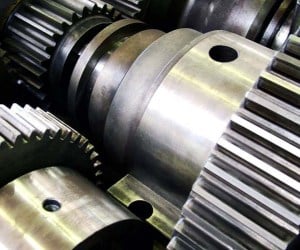

 Specialization is a fact of life in equipment breakdown insurance, also referred to as ‘machinery risk,’ although brokers needn’t be shy about their ability to provide valuable advice in this field.
Specialization is a fact of life in equipment breakdown insurance, also referred to as ‘machinery risk,’ although brokers needn’t be shy about their ability to provide valuable advice in this field.
Brokers may feel uncomfortable speaking to their commercial clients about machinery risk, because many believe they need advanced technical know-how to provide advice on equipment breakdown insurance in particular manufacturing segments. Certainly brokers do need to know the specific needs of their clients, because many types of businesses exist and their machinery risks are not all the same.
But “you don’t have to be an expert and you don’t have to be an engineer,” said Ann Hildreth, manager of Marsh Canada's machinery risk solutions division. “Think of it as just another peril.
“Most brokers are very comfortable with property insurance, and the way to think of equipment breakdown or machinery breakdown is to think of it as a single-peril policy. A machinery breakdown is a single peril. It’s all about understanding your client and that is something that any good broker will do. It’s about offering good advice and understanding your clients.”
Commercial businesses are protected by commercial property policies, which cover electrical, mechanical and other types of business equipment from damage arising from fire, theft and other perils.
But these same commercial policies generally do not include coverage for the sudden breakdown of the company’s equipment or machines, or the losses associated with the business shutdowns caused by these malfunctions.
Despite a myriad of different types of equipment across industry sectors, Canadian businesses do share some common types of losses, Hildreth observed.
For example, they are more frequently experiencing equipment breakdowns due to electrical power failures and outages, in addition to water damage.
Equipment failures due to electrical malfunctions or outages are particularly prevalent due to aging infrastructure. Many transformers were built during a boom era during the 1960s and have not been updated since then.
“Clients are reliant upon either the buildings to supply them with electricity – a landlord – or, if they own the building or premises, they’re relying upon the public utility to supply them with electricity,” said Hildreth. “So transformer failures are prevalent because infrastructure in North America is starting to age, and there is a limited life on transformers, probably about 40 years…. I think a lot of brokers don’t always necessarily think of the fact that every client and every prospect has an exposure to that.”
Clients are also increasingly exposed to interruptions caused by equipment breakdowns in their suppliers’ businesses, said Louis Vatrt, vice president and director of equipment breakdown insurance at RSA Canada.
“The risks are becoming more complex, requiring comprehensive enhanced coverages to transfer the risk,” he said.
For example, contingent business interruption (CBI) exposures arise from an insured loss suffered by a critical supplier or customer. A tsunami in Japan might affect an auto plant in Windsor, Ontario .jpg) because a component the Windsor plant sources from a Japanese company is not available.
because a component the Windsor plant sources from a Japanese company is not available.
Business interruption (BI) exposures arise when a client’s own business is temporarily halted or delayed. A gold mine, for example, might send its concentrate to a third party for processing. If the process plant has a breakdown, the gold mine might suffer a loss because they cannot get their concentrate processed for the market.
Brokers need to be aware of how these exposures are covered off in equipment breakdown insurance policies.
“A recent trend is for brokers to sell an all-risk policy, which has both property and EBI coverage in one policy, instead of the traditional monoline EBI & Property policy,” said Vatrt. “An all-risk policy form may not afford the same coverages as a monoline policy, which leaves the policyholder self-insuring a breakdown and resultant business interruption.”
Hildreth’s brokerage has a team of engineers that can provide clients machine risk advice, whereas many smaller brokers do not. Smaller brokers may rely more heavily on insurers to provide engineering expertise, although not all insurers provide this resource.
“In the provinces of Ontario and Quebec, it is the responsibility of the insurance company to complete the jurisdictional in-service inspections of boilers and pressure vessels for public safety,” said Vatrt. “However, a growing number of insurance companies that are writing EBI insurance do not have an in-house inspection agency to complete the inspections or limited number of staff. This may put both the public and the insured at risk.”
The role of the broker is to make sure that, if the broker is relying on the services and advice provided by insurers, the broker feels comfortable advocating for the client, whatever his or her level of technical expertise may be.
“Don’t lose track of your role in the equation,” Hildreth said. “Yes, you bring in the insurance company to provide technical advice to work with you. But that’s the key: to work with you. Don’t let the insurance company replace you and do their thing. Stay involved and stay engaged.”
